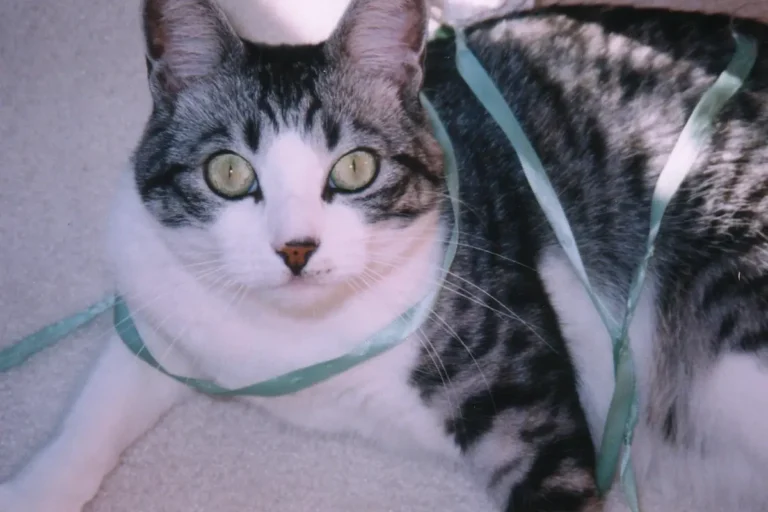Cats don’t run away because they don’t love you, they run because their instincts tell them to. From curiosity and hunting drives to stress, illness, and changes at home, many factors play a role. This article explores the top reasons cats run away and offers practical tips to keep your feline safe, happy, and close to home.
Table of Contents
Have you ever opened the door just for a moment and seen your cat almost fly out of the house like a furry flash of lightning? That sinking feeling, when your heart skips a beat and you wonder where your cat could have gone, is something all cat parents know. It raises one important question: why do cats run away?
Some cats leave home in pursuit of adventure, while others are driven by instincts they cannot resist. Some cats leave because they are stressed or ill, others leave to explore new things.. Regardless of why they leave, the reasons are often complex. Once you recognize these reasons, you can address them. This helps create a happier, safer home.
Tito once turned into a rooftop Houdini, disappearing faster than I could blink. That’s when I realized how valuable a GPS tracker could be. The Pawfit Lite would have been the perfect safety net, it helps track adventurous felines and gives peace of mind when curiosity wins over caution.

In this article, we’ll explore some common reasons why this happens and provide tips on how to prevent those heart-stopping exits.
1. Natural Curiosity and Exploration
Cats are instinctive explorers. New sounds, smells, and movements are stimulating to them. Indoors, they have a level of familiarity. Outdoors, they have an experience of adventure. This is one of the main reasons why cats run away.
They don’t run because they dislike home. They run because discovery excites them. But curiosity carries danger, such as traffic, predators, or even getting lost. By recognizing this, you can turn frustration into prevention. Since curiosity drives them, enrichment at home can help.
However, curiosity isn’t the only instinct that pulls them away. Sometimes, biological reasons are even stronger.
2. Mating Instincts
Unaltered cats are often roamers. Males may travel far to find their mates. Females may also roam to find mates when they are in heat. These strong urges caused by their hormones can override comfort, food, or even the feeling of danger.
Not even the most secure house can stand up to biology. The solution, however, is pretty simple. Spaying and neutering will lessen that drive and keep your cat closer to home.
When hormones aren’t the only reason, fear often also plays a role. Stress can be just as strong a motivator.
3. Fear and Stress
Cats are sensitive animals. A loud firework, a stranger visiting the house, or even moving heavy furniture can create fear. When cats get stressed, their instinct to flee is activated. To them, running is safer than staying put.
This may lead you to think: Why does my cat run away from me when I’ve done nothing wrong? The truth is, it’s rarely personal. Your cat isn’t rejecting you. They’re protecting themselves from what they see as a threat.
The problem is that once outside, fear doesn’t fade. Fear can push them farther from home, driving them to search for safety. What starts as a small experience of fear can turn into a prolonged absence. And sometimes, fear is mixed with something deeper. It is a territorial instinct.
4. Territory Disputes
Cats are naturally territorial. When another cat enters their space, conflict starts. Some cats leave to defend their territory. Others choose to disappear to avoid any confrontation.
This explains why cats run away from home even when they are loved and cared for. You may never see the rival, but your cat knows they are there. Their response is often to disappear, looking for control or peace elsewhere.
It is not easy to predict territorial disputes, but they can easily push cats out of safe spaces. When territory isn’t the issue, another basic instinct may come into play: the hunt.
5. Hunting Drive
The instinct to hunt is innate within every cat. Birds, insects, or rodents can all activate the cat’s instinctual drive. Even the sound of something stirring in the grass may send your feline friend into stalking mode.
This instinct will often pull them away from familiar territory. And before you know it, your cat running away is not mere disobedience but instinct in action. They chase because they are programmed to do it.
But not all disappearances are about the excitement of searching or hunting; some are about fleeing from boredom.

6. Lack of Enrichment
A bored cat becomes an active cat. When they lack stimulation, they will become focused on finding entertainment outside. Scratching posts, climbing trees and interactive toys are not just playthings. They are a way for your cat to release their energy.
If your cat finds the outside world more appealing, it will go outside. Over time, this behavior can become a habit. This habit poses risks, making curiosity a danger.
However, boredom isn’t the only cause. Sometimes, a cat’s disappearance can indicate an illness.
7. Illness or Injury
Cats are incredibly skilled at hiding pain. When they are sick, many cats will withdraw from contact with other animals or even their humans. Instinct tells cats to isolate when they are ill, which can mean leaving home altogether.
This makes sudden disappearances more concerning. If your cat runs off and doesn’t come back quickly, illness might be an issue. Changes in appetite or behavior are also warning signs. Regular checkups help find these problems early.
Of course, even healthy cats that wander outside face serious risks. Their lifestyle can have a significant impact.
8. Outdoor Lifestyle Risks
Outdoor cats face constant temptation. Rival cats, hunting areas, and open roads all draw them away. These dangers explain why many owners wonder how to keep an outdoor cat from running away.
Routine is the answer. Feed them at set times. Build safe outdoor enclosures. Some owners even train their cats to walk on a leash for controlled adventures. These steps lower the risk, but they don’t eliminate it.
9. Changes In The Household
A new pet, a new baby, or even a houseguest can affect cats. They notice every change in their surroundings. These shifts can make them uneasy, leading to feelings of insecurity.
Some cats respond by hiding in quiet spots. Others go outside to find relief. In this way, changes in the home connect with fear, but the cause is different. It’s related to territory and routine. When multiple changes occur, cats may even avoid the people they trust the most.
Beyond changes at home, nature can affect your cat’s behavior. Seasonal instincts and changes in weather often influence how they act.

10. Seasonal Instincts and Weather Changes
Cats are very aware of their environment. Seasonal changes, temperature fluctuations, and daylight changes all play a role in cat behavior. In warmer months, they may wander a little further, pursuing scents, prey, or just the joys of doing whatever they like.
On the other hand, sudden weather events, like heavy rain, storms, or extreme heat, can force them to run away in search of safer or more comfortable shelter. To us, it may seem sudden and unpredictable, but for them, it’s all about survival.
Owners often ask if cats come back when they run away. Most do. Studies show that many return within 24 to 48 hours, especially if they are familiar with home. However, frequent roaming increases risks from cars and predators.
With this in mind, prevention becomes essential. This brings us to how you can keep your cat safe.
How to Keep Cats From Running Away
So, how do you keep an outdoor cat from running away? It starts with providing enrichment at home. Provide toys, climbing areas, scratching posts and create safe outdoor enclosures like catios. This way, they can explore without danger.
For intact cats, spaying or neutering lessens the strongest urge to roam. For stressed cats, a stable home is crucial; keep routines predictable and surroundings calm.
For veterinarians, these discussions often go beyond pet care. If you’re helping owners, you may also want to look into the reasons why cats run away. Vet and Tech offers free veterinary CE webinars to support professionals who teach pet owners every day.
Keeping Paws Close to Home
So, why do cats run away? The truth is, there isn’t just one answer. Curiosity, fear, hormones, boredom, and even illness can drive them. What matters is recognizing the patterns and addressing them early.
Your cat doesn’t run away because they don’t love you. They run because their instincts push them to. By creating a safe, stimulating, and predictable home, you can reduce their urge to escape and bring more peace to both you and your pet.
FAQs
Why do cats run away from home?
There are many reasons why a cat might run away, including natural curiosity, hunting instincts, stress, illness, and changes to their environment. Even cats that are loved and cared for will wander off on their own instinct.
Will my cat come back if it runs away?
Most cats usually come back within a few hours or days, especially if they feel attached to their home. However, dangers outside can slow them down or stop them from returning. Placing familiar scents, food, and their litter box outside may help lead them back.
How do I stop my cat from running away?
Prevention starts with enrichment at home. Offer toys, scratching posts, climbing areas, and interactive play. Spaying or neutering reduces roaming. You can also provide secure outdoor enclosures or leash training to let them enjoy the outdoors safely.






